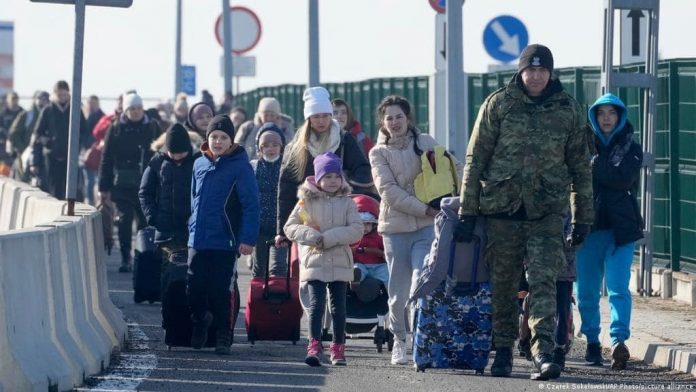People fleeing Russia’s invasion of Ukraine are widely supported across Europe. But they face challenges in education, finding work and making ends meet, as results from the latest survey from the EU Agency for Fundamental Rights (FRA) reveal. The results should guide policymakers to find sustainable solutions that benefit both the people who fled and their host societies.
“The aggression in Ukraine has evoked the largest humanitarian crisis in Europe since the Second World War,” says FRA Director Michael O’Flaherty. “The EU and its Member States enacted temporary solutions providing much needed support. As the war drags on, we need to put in place effective long-term measures that allow host societies and displaced people to adapt to the upheaval resulting from this war.”
FRA’s ‘Fleeing Ukraine’ report captures the first-hand accounts of some 14,500 people who fled the war and settled in the EU.
Although 1 in 3 now feel part of the host country’s community, the same proportion would like to return to Ukraine. One woman in Romania summed up the welcome many felt: “I am amazed at how much they have been taking care of us, Ukrainians, since the beginning of the war, helping and supporting us.”
The EU’s rapid activation of the EU Temporary Protection Directive allowed people fleeing the conflict to quickly settle and to work, travel and access services across the EU. But the survey shows that practical difficulties remain:
Language: Although 23% attend language courses, not knowing the host country’s language is the main reason people drop out of education, do not work or struggle to get healthcare. As a woman in Germany told us: “It is very difficult to be in a country where you do not understand and do not speak the language. This is a very big problem in solving many issues.”
Housing: Although 59% pay for their housing, they often have to share facilities, such as a toilet or kitchen. Many lack privacy or a quiet space for their children to study.
Education: 59% of children attend education online with a Ukrainian school or study on their own with material or support from Ukraine.
Work: Only 33% have a paid job and 33% of women do not work because they need to care for children, or elderly/ sick relatives. 48% say that their new job was below their level of education and 30% say they were exploited at work.
Cost of living: 79% face difficulties in making ends meet.
Health: 49% feel downhearted and depressed since coming to their host country. 49% of young children have difficulty sleeping and/or concentrating.
The survey ran from August to September 2022 in Bulgaria, Czechia, Estonia, Germany, Hungary, Italy, Poland, Romania, Slovakia and Spain.

